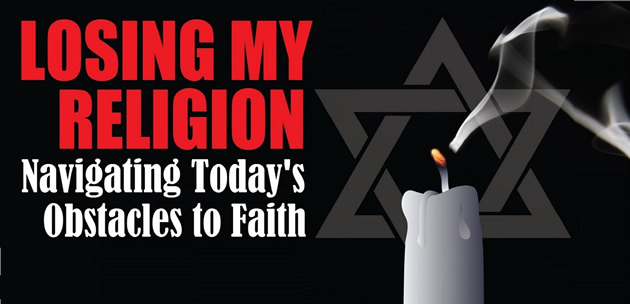A Critical Book Review by Gerald Segal
Anti-Semitism: The Persecution of God and His Chosen People. By Steffi Rubin. San Rafael: Jews for Jesus,1977
Duplicity and sanctimonious rhetoric have long been the staples of Christian missionaries who seek to convert Jews. This booklet, by Steffi Ruben, one of the original members of the Jews for Jesus organization, is no exception to Paul’s aphorism on the use of deceit: “Whether in pretense or in truth, Christ is proclaimed; and in this I rejoice, yes; and I will rejoice” (Philippians 1:15-18).
Steffi Rubin begins her discussion of anti-Semitism by giving a brief summary of the anti-Jewish theology of the early church fathers. She then acknowledges that “Catholicism wasn’t the only perpetrator of church anti- Semitism. . . . Martin Luther . . . said that the root of . . .
Steffi Rubin claims that “Those who busy themselves with persecuting Jews for the murder of a living Messiah are a testimony to their own lack of faith, and certainly are not ‘Christian’ in the true sense of the word” (p. 38). She states that “You just can’t hate the Jews without hating Jesus, the Jew” (p. 40). If this is correct, what then is the salvation status of Christians who hate and persecute the Jews, who, in effect, we are told hate Jesus as well? Does she consign them to the same fate as she believes befalls those Jews who do not believe in Jesus? The Jews for Jesus tract, Where Was God –when the 6 million died? released, in 1973, under her maiden name, Steffi Geiser, declares emphatically that Jews are “lost” and are “hurled namelessly into a cold eternity.”
Steffi Rubin is not so clear concerning the fate of Christian haters and persecutors of the Jewish people. For Steffi Rubin, the writings of the church fathers not having to do with Jew baiting and “the work that Luther accomplished toward reform in the church” (p. 36) may override any divine eternal condemnation based on their Jew hatred and its alleged accompanying subliminal hatred of Jesus. She intimates that this work for the church makes atonement for their not being “‘Christian’ in the true sense of the word.” Steffi Rubin writes concerning the church fathers, “It is not for us to judge the assigning of places in the Kingdom of God. It is His Kingdom, and that is His privilege. For to say that all the Church Fathers ever wrote about was the dastardliness of the Jew would be to send the whole question out of proportion” (p. 34). Although she adds, “But to ignore the record would be equally unfair and unrealistic” (p. 34) that is exactly what she does.
Steffi Rubin has stated that Jews who do not accept Jesus are to suffer eternal condemnation. At the same time, she implies that a Christian, who hates the Jews, and, by inference shows hatred of Jesus, has not brought upon himself eternal condemnation. For Steffi Rubin, a Christian’s work on behalf of the church may override, in God’s sight, that individual’s anti-Jewish actions. With this sanctimonious attitude she declares, “The true Christian is anxious to forgive” (p. 39). Yet, apparently, as “true Christians” have created God in their own image, “forgiveness” is limited in heaven as it is on earth.


